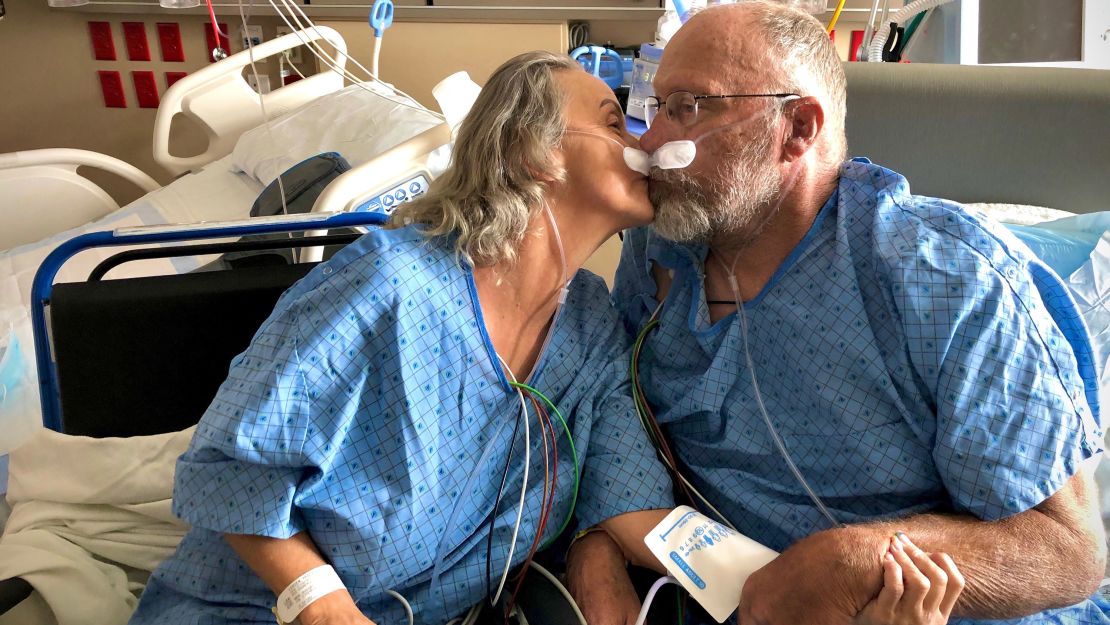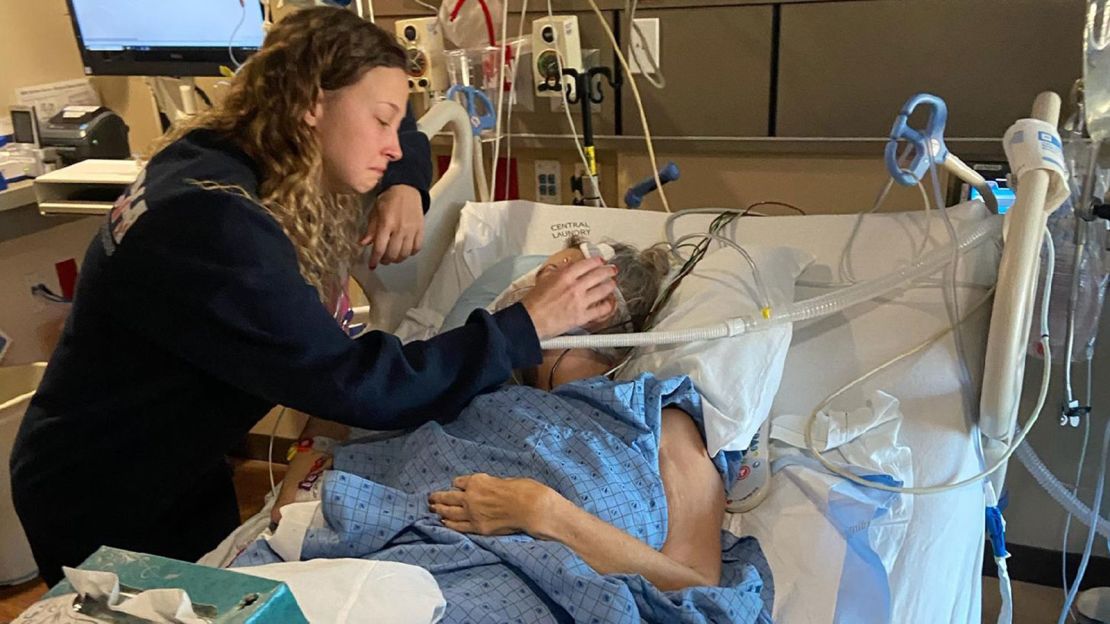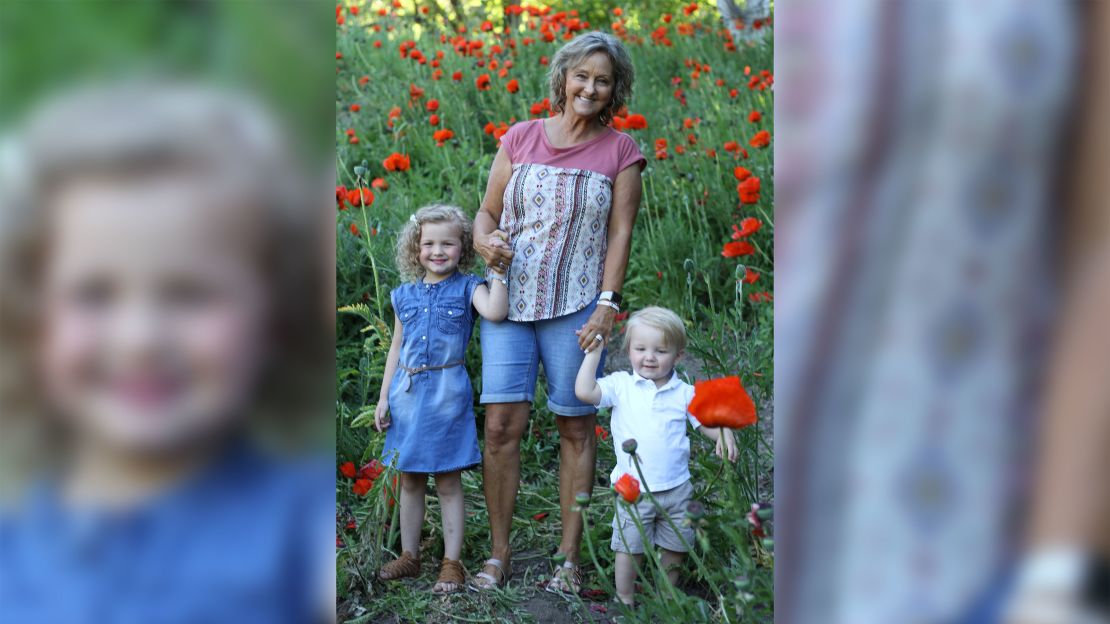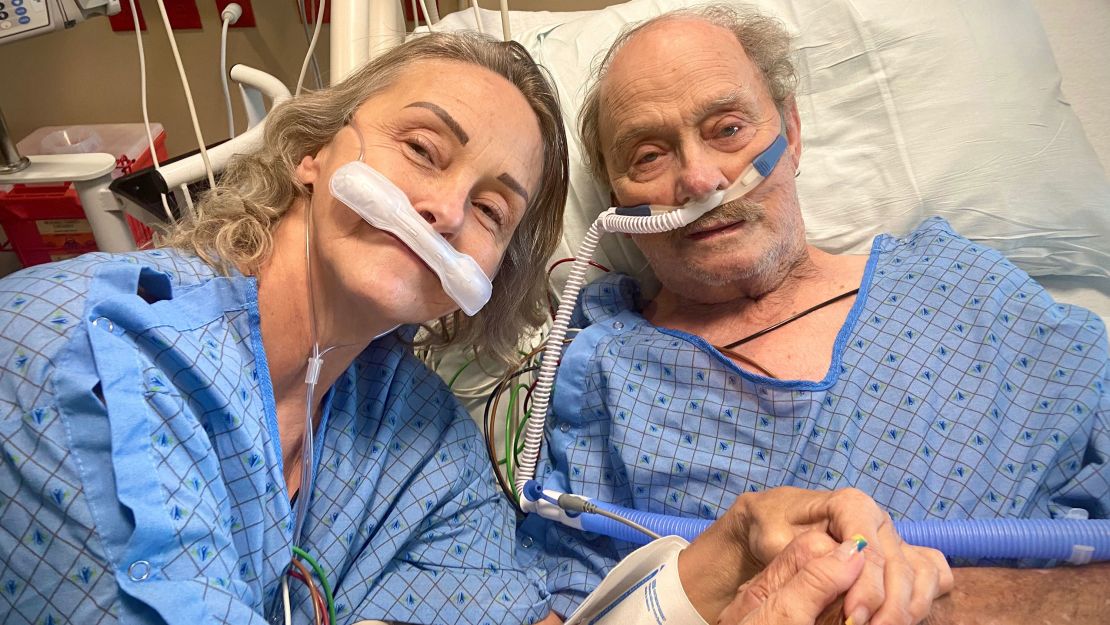October was the hardest month of Lindsay Wootton’s life.
That’s when the 34-year-old Utah resident experienced firsthand, the devastating toll of the coronavirus pandemic. On October 11, doctors broke the news that her mother, 56-year-old Tracy Larsen, would lose her long battle with Covid-19. Minutes later, she found out that her grandfather, 80-year-old Bert Porter, would also die.
“The last conversation – the whole day – was probably one of the harder days of my life,” Wootton said. “We called my grandpa and I put him on speaker phone so he could talk to my mom. He said, ‘kiddo, I’m not doing good,’ and she said, ‘dad, I’m not either.’ And he said ‘(Tracy), I’m dying. And she said, ‘dad, I am too.’
Her grandfather’s last words to her mom were, “I’ll look for you in heaven.”

Wootton’s father was fighting his own battle with Covid-19. Chad Larsen, a 61-year-old college softball coach, got sick in late August. He spent 46 days in the same hospital as his wife. Now home, recovering, while mourning the death of the love of his life.
The family’s tragic story is a microcosm of what’s happening across Utah and the country. As cases skyrocket, families like the Woottons are left to deal with the painful aftermath.
‘We’re at the breaking point’
In Utah, the number of Covid-19 cases increased by nearly 4,000 on Thursday, shattering the previous single-day case record by nearly 1,000.
Republican Gov. Gary Herbert said the state is at a critical moment. “We’re at the breaking point and ready to have some serious repercussions,” Herbert said Thursday.
The rise in infections has driven Utah’s seven day new case average to a record 2,738 cases. The positivity rate has now surpassed 23%. The death toll nearing 700, and climbing.
“Those numbers should be alarming to all of us as we look at the death rates, and those who are being hospitalized and the overrunning of our hospital system,” Herbert said.
The surge in cases is wreaking havoc on Utah hospitals, which have reached capacity.
“If you were denied an ICU bed would you still get care? Absolutely. But in our intensive care units, we’ve hit that line where we’re effectively full,” said Greg Bell, who heads the Utah Hospital Association that oversees all of the state’s hospitals.
Bell said that hospitals across the state have started converting acute care floors into ICU floors and workers are being repurposed as ICU nurses.
At the University of Utah Hospital, Dr. Elizabeth Middleton is preparing for another surge in patients. She’s the associate director of the medical intensive care unit and explains that it takes a few weeks for new cases to translate into hospitalizations.
“In two weeks we’ll be having a different conversation because I think we’ll see our hospitalizations increase across the state,” Middleton said.
“It’s the suffering that weighs on me,” Middleton added. “It’s the suffering of the patients. It’s the suffering of the staff who feel helpless in being able to stop the disease process or to make things better for another patient.”
Utah began a two-week state of emergency order enacted by Gov. Herbert on Sunday. The order mandates masks statewide, restricts social gatherings and outlines plans for expanded Covid-19 testing. The governor has deployed more National Guard troops to help with testing and contact tracing.
‘My kids don’t get their grandma’
For Lindsay Wootton, those measures are too little, too late. “I don’t think that it was done in time,” she said.
Wootton, a full-time mom of two and a part-time bartender says her mother was her best friend. They would spend countless hours on the phone each day, a void that Wootton says will be impossible to fill.

“I know there are hundreds of thousands, if not millions of families that are going through just what my family has gone through and it tears my heart out because this is the worst pain I’ve ever felt,” Wootton said. “Losing two family members in a period of weeks – it’s torture.”
Wootton says dozens of people in her extended family are either battling or have recovered from the virus. Many couldn’t attend her mother’s funeral for fear of further spreading the disease – so the family broadcast the services on Zoom.
She’s grateful for the doctors and nurses who’ve helped brighten her family’s last moments together. When Tracy and Chad Larsen were both in the same ICU ward, Wootton says nurses helped the two celebrate their 34th wedding anniversary by sharing a date night.
“A nurse and I were able to wash and braid it her hair and got her dolled up as much as we could,” Wootton recalled. “We didn’t think that it would be the last time that they would have a date. So it’s something that we can all look back on and smile because it’s that special to spend 34 years together.”

Wootton said that her father is devastated. Her 6-year-old daughter is also struggling to cope with the loss.
“My little girl asked me, mom, can’t you get a new mom? So I had to explain it to her, honey, you only have one mommy and they’re irreplaceable.”
Wootton tears up when she thinks about all of the special milestones that her mother will miss.
“It’s frustrating that people brush [coronavirus] off as just the flu, because for some people it’s not, for some people, it costs their life,” she said, choking up. “My kids don’t get their grandma, my mom will never see my kids get married.”

As Covid-19 cases continue to climb across Utah, Wootton said she hopes her pain will serve as a warning for other families.
“I do think it’s avoidable if everyone listened to the health care professionals and wore their face masks in public, washed their hands, socially distanced and kept their group size smaller,” she said. “If you’re not concerned about your own health, do it as a concern for someone else. We could save lives just by wearing a mask and just by thinking of someone else other than ourselves.”
CNN’s Jack Hannah contributed to this report.



